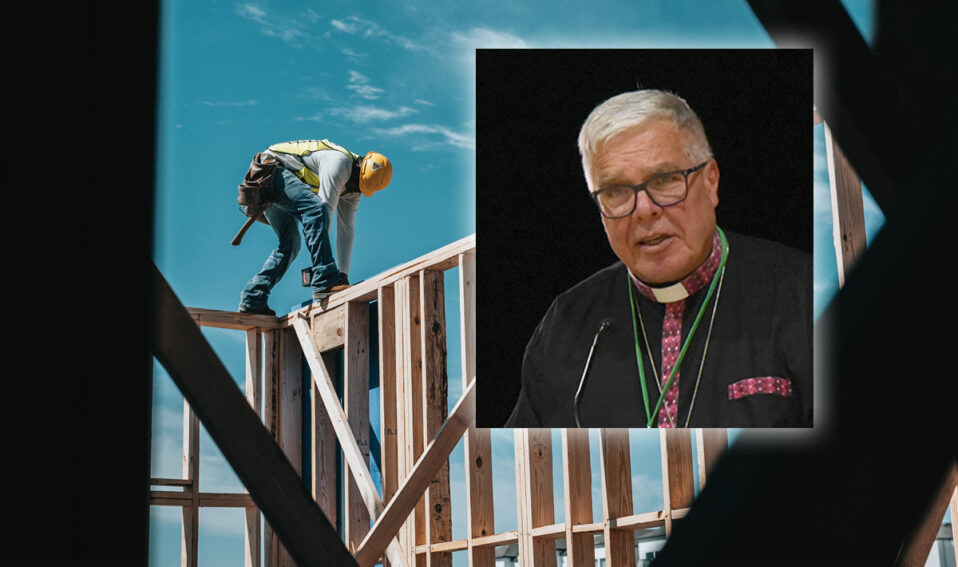The Evangelical Lutheran Church in Canada’s (ELCIC) Eastern Synod is embarking on a new journey of redevelopment through various agencies throughout the province of Ontario.
This past week the Eastern Synod signed its official memorandum of agreement with the United Property Resource Corporation (UPRC) which will allow the possibility of moving towards the redevelopment of church properties into new, affordable housing.
“Like a lot of people in the wider church – not just our church – I’ve realized for several years that we have under-utilized assets, in terms of properties and buildings that aren’t being used in ways that would mirror faithful stewardship,” Eastern Synod Bishop Michael Pryse said. “We have land that’s not being utilized as effectively as we want, so we wondered how exactly could those things be brought together?”
Although Bishop Pryse suggests that this project will likely take as many as five years to fully execute, there have already been conversations with upwards of 40 Eastern Synod congregations, to which approximately 10 are fully on board with the idea.
“When determining ministry strategies, we look at communities and see what some of the bad news is in the area, and reflect on if we might have the resources that could bring in appropriate good news and response,” he shared. “One of the things that pretty much every community across Canada is facing right now is housing crises. People are homeless and many are not able to afford adequate housing; so that’s definitely a bad news story.”
That ‘bad news story’ grew far worse over the past three years, as the impact of the global pandemic worked its way through the housing market – something Bishop Pryse suggests helped speed up the process of the Synod’s redevelopment plans.
While conversations on this began more than eight years ago, the recent partnership with The United Church’s UPRC gives the Eastern Synod some valuable knowledge and training in the redevelopment sector as a way of helping assist some of the most vulnerable persons within the interested communities who continue to suffer due to the housing crisis.
Bishop Pryse says the Eastern Synod has been working alongside UPRC for the past two years, and has recently been in cooperation with other supportive housing outfits including Indwell, Menno Homes and Trinity Centres. “We realized fairly early on that there were a lot of people that were doing this work, and it just made sense to seek strategic partnerships with others. It is safe to say that we are dancing with a bunch of partners.”
How such a relationship would look from a logistics standpoint varies from one congregation to the next, but according to Bishop Pryse, it is a team effort. It wouldn’t be an outside decision from the Synod, but rather something that is talked about and discussed for a number of years.
“We recognize the congregations need help in different ways,” he said. “We would act as the trusted partner and then monitor the relationships to make sure our congregations are getting good service, and that their needs are being looked out for. This is all congregation based. So, I can’t just move in and say, ‘we are going to redevelop your property.’ It’s a lengthy process but should come with many positive benefits to all involved.”
Between the congregational buy-in, the feasibility studies, development models, municipal regulations, approvals and fundraising/partner outsourcing, redevelopment plans require significant effort and manpower. For Bishop Pryse, the reward of a good news story outweighs the daily suffering stemming from Canada’s housing crisis.
“This story has the potential to awaken the kind of imagination that should always inspire our churches when we think about what our mission is,” Bishop Pryse said. “This is one way; it is not the only way. But we need to be doing whatever we can to share good news stories that will encourage and inspire others to think imaginatively about what they might do with what they have. Whether that’s financial, physical or human resources, to help to advance the reign of God in the communities with which they live. That’s the value of telling the story.”




